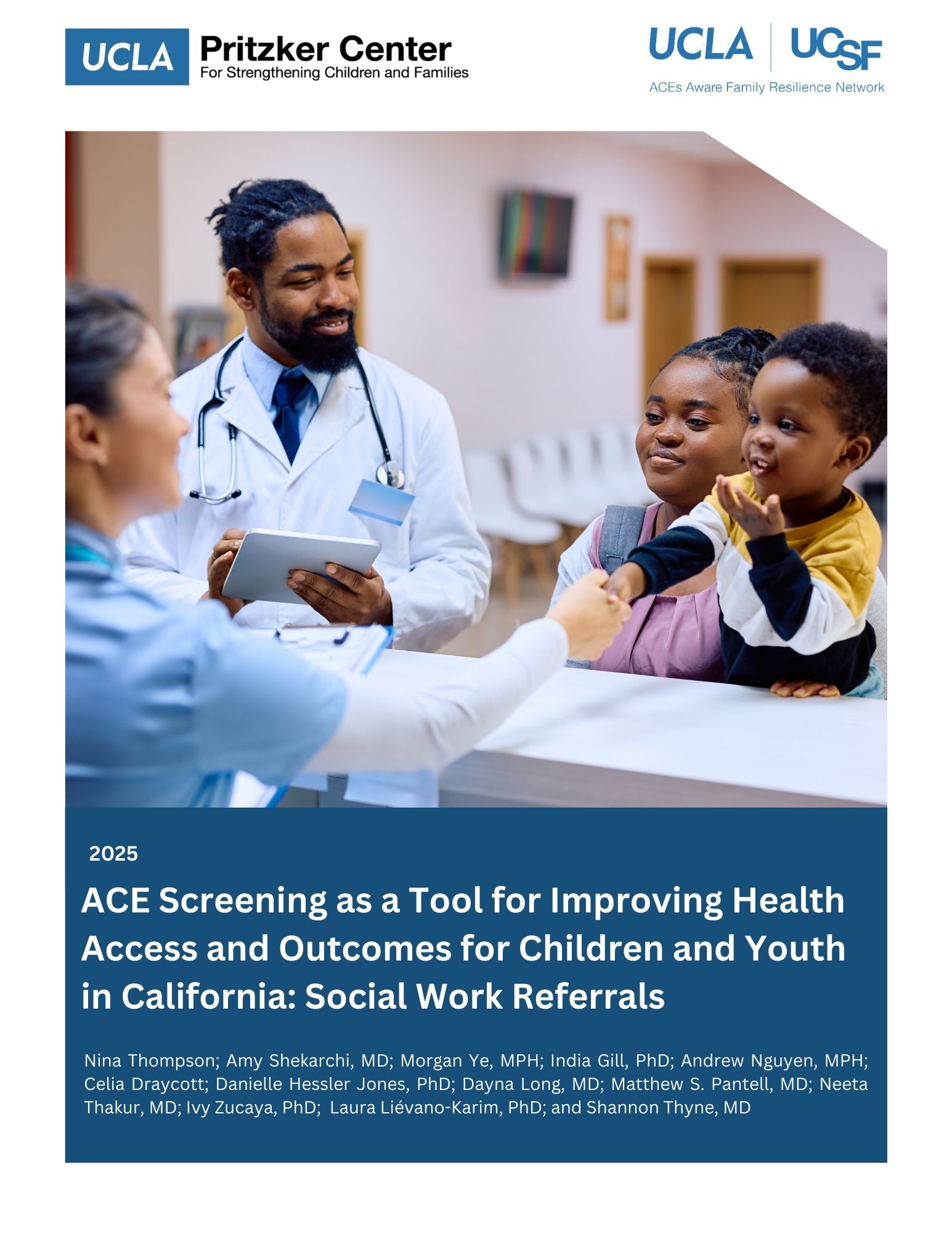ACE Screening as a Tool for Improving Health Access and Outcomes for Children and Youth in California
Social Work Referrals

Research shows that adverse childhood experiences (ACEs) can lead to toxic stress responses, which have lasting effects on physical and social-emotional wellbeing. California launched ACEs Aware to facilitate training on ACE screening and response activities to support healthcare providers in identifying and responding comprehensively to patient experiences of adversity.
Response activities may vary by resource allocation and availability but, generally, are evidence-based and can include relational conversations, universal toxic stress counseling and education, individualized patient assessments, and risk-stratified referrals.
To deepen our understanding of how ACE screening contributes to integrated health care access among youth enrolled in managed care, this brief examines clinician plans to refer children and families for Los Angeles County Department of Health Services (LA DHS) social work services following ACE screening. Nearly 12,000 ACE screenings were conducted on behalf of about 4,000 unique patients ages 17 and under. About 20% of screens had at least one ACE indicated, and 5.5% of all patient visits associated with ACE screening included a plan to refer the patient and/or family to LA DHS social work services, regardless of ACE score.
Key Takeaways
• Most screened patients (regardless of ACE score) were not referred to LA DHS social work services, demonstrating that referring to social work is not an automatic response to ACE screening.
• Referrals to LA DHS social work services were more common when screening resulted in higher ACE scores, indicating that ACE screening can assist providers in identifying patients at higher risk of toxic stress and unmet needs for social work support.


Recommendations
1. Managed Care Organizations (MCOs) should support and incentivize ACE screening and training on ACE screening and response for practice groups to help identify those at highest need for supportive services, including social work.
2. Policymakers should support MCOs and affiliated practice groups to leverage existing programs funded through California Advancing and Innovating Medi-Cal (CalAIM) more effectively, equitably, and efficiently by simplifying and defining workflows for organizations to build and receive payment for services and for patients to equitably access these services. Some specific actions to facilitate utilization of CalAIM include:
a. Provide bridge funding for practice groups to create behavioral health or social work teams that can be sustainably maintained through CalAIM funding.
b. Support practice groups to gain the knowledge needed to successfully and sustainably bill for these services.
c. Ensure practice groups have the resources and tools needed to provide all patients in their practice group universal access to toxic stress resources and education.
This work was funded by the UCLA/UCSF ACEs Aware Family Resilience Network (UCAAN) and Olive View-UCLA Education and Research Institute.


